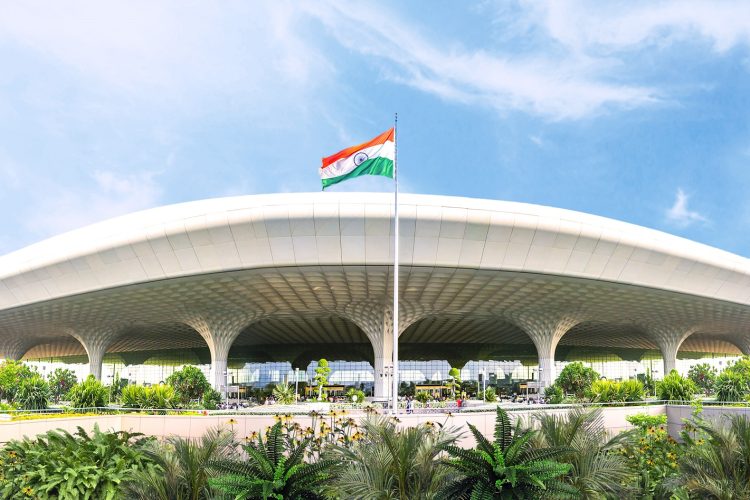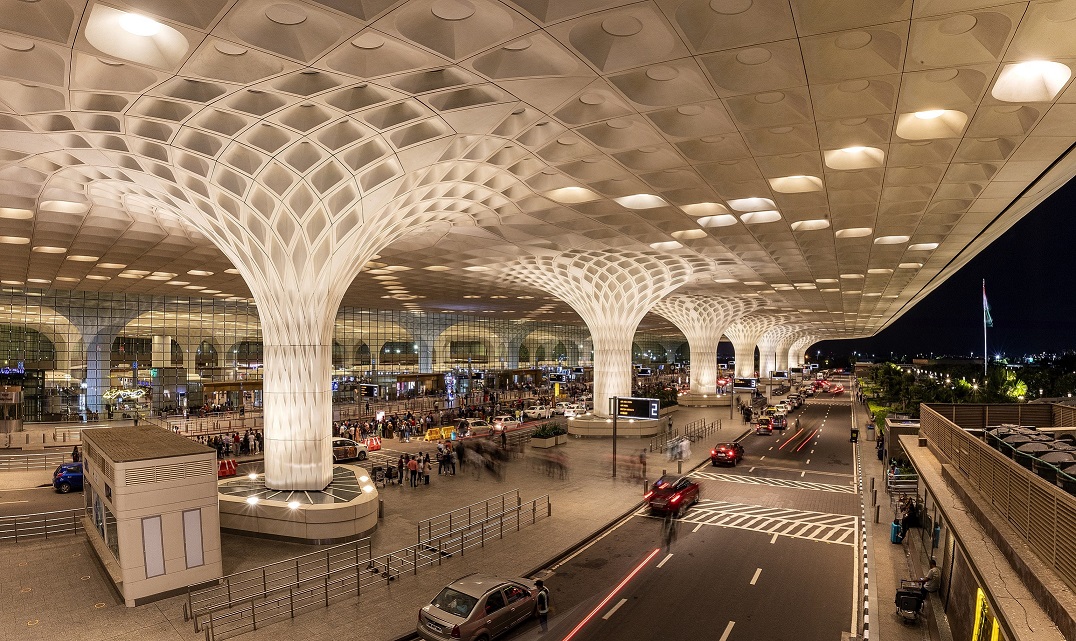Towards a greener future as CSMIA champions environmental stewardship and sustainable growth
- Like
- Digg
- Del
- Tumblr
- VKontakte
- Buffer
- Love This
- Odnoklassniki
- Meneame
- Blogger
- Amazon
- Yahoo Mail
- Gmail
- AOL
- Newsvine
- HackerNews
- Evernote
- MySpace
- Mail.ru
- Viadeo
- Line
- Comments
- Yummly
- SMS
- Viber
- Telegram
- Subscribe
- Skype
- Facebook Messenger
- Kakao
- LiveJournal
- Yammer
- Edgar
- Fintel
- Mix
- Instapaper
- Copy Link
Posted: 16 December 2024 | Mumbai Chhatrapati Shivaji International Airport (BOM) | No comments yet
Mumbai Chhatrapati Shivaji Maharaj International Airport champions sustainability with waste reduction, energy efficiency, and green initiatives, striving for net-zero carbon emissions by 2029, setting a benchmark for eco-friendly aviation.


Credit: Chhatrapati Shivaji Maharaj International Airport (CSMIA)
Chhatrapati Shivaji Maharaj International Airport (CSMIA) has woven sustainability into every aspect of its operations, driven by a deep understanding of the environmental impact of modern air travel. Through initiatives in waste reduction, energy conservation, and resource management, CSMIA is setting a new benchmark in the Indian aviation industry, leading the way towards a cleaner and greener future in air travel.
Minimising waste across operations
At the core of CSMIA’s sustainability efforts is a powerful waste management system that has diverted 99.6% of its waste from landfills. CSMIA has streamlined various initiatives to minimise waste across the operations:
- Waste segregation and recycling: A comprehensive waste management system includes waste segregation at source and safe disposal through authorised vendors across both commercial and cargo operations.
- Plastic waste reduction: CSMIA is a proud flag bearer of green initiatives in the Indian Aviation industry, under which Reverse Vending Machines (RVM) were installed to encourage passengers and the airport community to recycle plastic bottles by safely disposing of them in RVMs.
- Organic waste management: Organic waste from food and beverage outlets is processed in an on-site composting facility, producing compost for landscaping.
- E-waste management: The airport has set up e-waste collection points for the proper collection of electronic waste generated within the airport. Mumbai Airport disposes all the e-waste via authorised vendors.
- Tissue-less toilets: To minimise paper waste, hand dryers have been installed in washrooms, significantly cutting tissue paper consumption.
Running a major airport sustainably poses unique challenges, particularly in managing energy consumption and waste reduction”
Through these innovative steps, CSMIA is creating a cleaner, greener, and more sustainable airport experience.
Engaging passengers in sustainability efforts
A key part of CSMIA’s sustainability drive is engaging passengers to create a culture of shared responsibility. To make recycling simple and intuitive, CSMIA has placed color-coded waste bins throughout the terminals, helping travellers easily separate waste into dry, wet, and plastic categories. Even Security Restricted Articles (SRAs) are collected separately and recycled. Through clear signage and thoughtfully designed waste stations, passengers are invited to be active participants in these initiatives.


Credit: Chhatrapati Shivaji Maharaj International Airport (CSMIA)
Navigating challenges and implementing energy efficiency initiatives
Running a major airport sustainably poses unique challenges, particularly in managing energy consumption and waste reduction. To tackle these, CSMIA has invested significantly in energy efficiency, turning to renewable sources like solar power, and through thoughtful upgrades including:
- LED lighting retrofits, converting terminal and taxiway lights to LEDs
- Advanced daylight harvesting systems and double-glazed façade systems, which reduce heat ingress and improve energy efficiency.
- Heating, ventilation, and air conditioning (HVAC) optimisation, using a Variable Air Volume (VAV) controlled system.
Recent milestones and technological investments
CSMIA’s commitment to environmental responsibility has already yielded significant results. It has been a carbon neutral airport with ACA level 4+ accreditation for several years. It has achieved this by using a 100% green electricity supply, transitioning to electric vehicles, and increasing onsite solar power generation.
As a pivotal force in India’s journey toward eco-friendly infrastructure, CSMIA showcases what it means to be a sustainable airport. Key long-term sustainability goals include zero waste to landfill, water positivity, and an increased share of renewable energy. Guided by ambitious environmental, social and governance (ESG) standards, the airport is not only setting benchmarks but also reimagining how aviation can harmonise with environmental goals.
CSMIA has its sights set on achieving ‘Operational Net Zero Carbon Emissions’ by 2029. By inspiring travellers and collaborating with partners, CSMIA is charting a new course for sustainable travel, one that could reshape aviation in India and beyond.
Related topics
Airport Carbon Accreditation (ACA), Airport development, Cleaner, Greener Airports: Making Aviation More Sustainable Series, Emissions, Green energy, Innovation, Passenger experience and seamless travel, Sustainability, Sustainable development


















